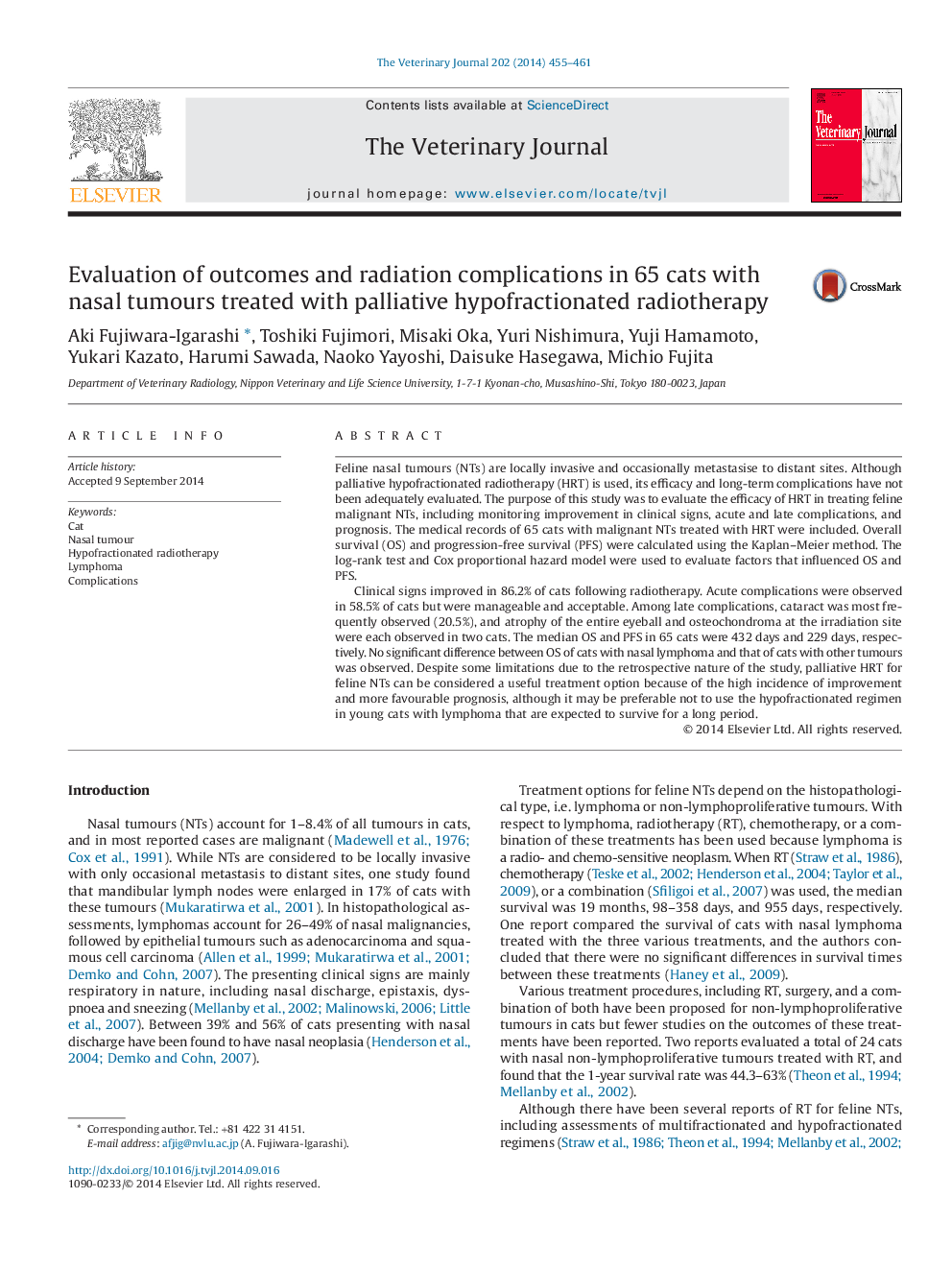| کد مقاله | کد نشریه | سال انتشار | مقاله انگلیسی | نسخه تمام متن |
|---|---|---|---|---|
| 5797760 | 1111760 | 2014 | 7 صفحه PDF | دانلود رایگان |
- Clinical signs improved in 86.2% of cats following hypofractionated radiotherapy.
- The median OS in 65 cats with nasal tumours was 432 days.
- Acute complications were manageable and acceptable.
- Atrophy and osteochondroma as late complications were observed in two cats.
- No significant difference of OS between histopathological classification.
Feline nasal tumours (NTs) are locally invasive and occasionally metastasise to distant sites. Although palliative hypofractionated radiotherapy (HRT) is used, its efficacy and long-term complications have not been adequately evaluated. The purpose of this study was to evaluate the efficacy of HRT in treating feline malignant NTs, including monitoring improvement in clinical signs, acute and late complications, and prognosis. The medical records of 65 cats with malignant NTs treated with HRT were included. Overall survival (OS) and progression-free survival (PFS) were calculated using the Kaplan-Meier method. The log-rank test and Cox proportional hazard model were used to evaluate factors that influenced OS and PFS.Clinical signs improved in 86.2% of cats following radiotherapy. Acute complications were observed in 58.5% of cats but were manageable and acceptable. Among late complications, cataract was most frequently observed (20.5%), and atrophy of the entire eyeball and osteochondroma at the irradiation site were each observed in two cats. The median OS and PFS in 65 cats were 432 days and 229 days, respectively. No significant difference between OS of cats with nasal lymphoma and that of cats with other tumours was observed. Despite some limitations due to the retrospective nature of the study, palliative HRT for feline NTs can be considered a useful treatment option because of the high incidence of improvement and more favourable prognosis, although it may be preferable not to use the hypofractionated regimen in young cats with lymphoma that are expected to survive for a long period.
Journal: The Veterinary Journal - Volume 202, Issue 3, December 2014, Pages 455-461
